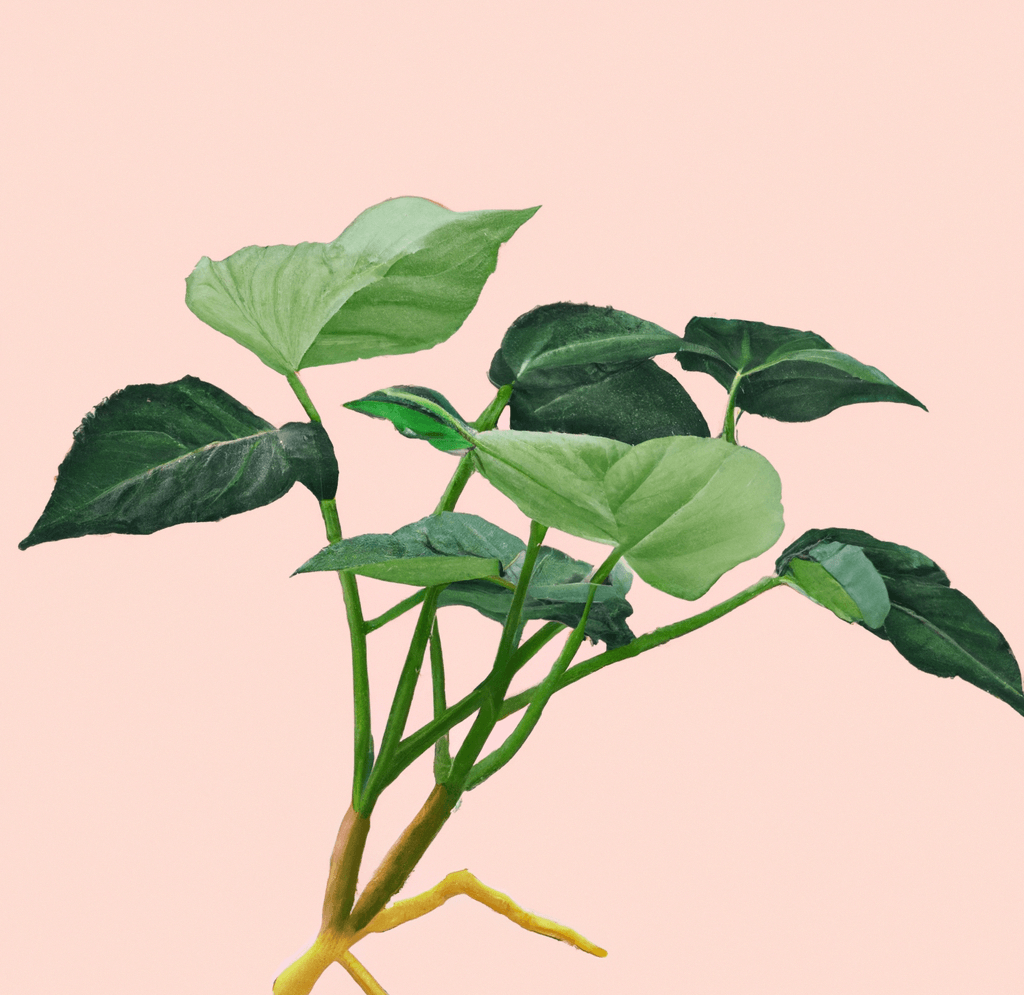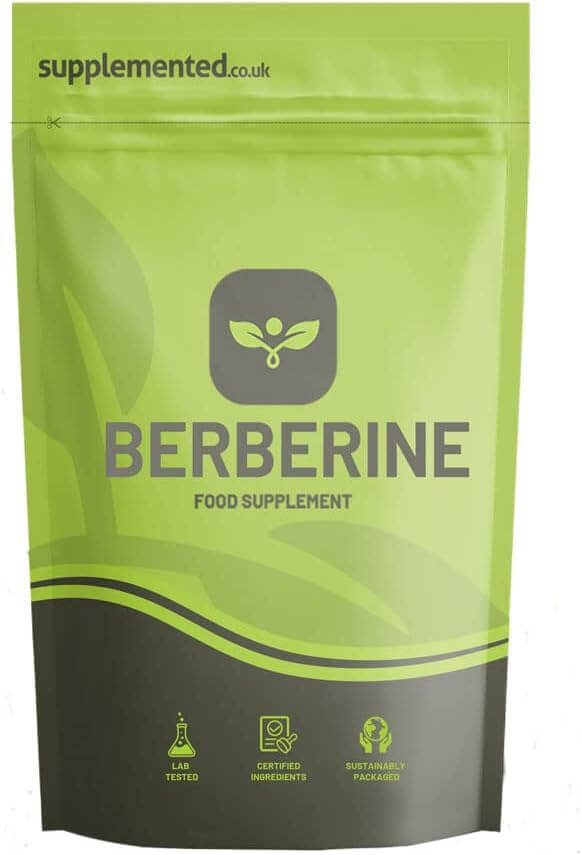Kava Kava | Biohacking your body
28 November 2023 | James Kearslake
Table of Contents
Fun Fact
In Fiji, the ceremonial practice of sharing Kava Kava, often referred to as a ‘Kava ceremony’ or ‘Kava circle,’ holds deep cultural and social significance. The Kava ceremony is a communal event that fosters social bonding and community cohesion. It is often used to bring people together for various purposes, including celebrations, important discussions, or simply as a way to connect.
The term for the traditional Kava Kava gathering is ‘tanoa,’ and involves the passing of a coconut shell filled with the brew, fostering a sense of unity and friendship among participants.
What is Kava Kava
In Fiji and the pacific islands, Kava has been taken for more than a thousand years for its naturally calming effects. Used in ceremonies as part of a bonding ritual, it was thought that Kava helped people relax, become more social, and that it would complement the bonding ritual and community cohesion.
Now widely known as anxiety-reducing, Kava gained popularity in Western culture as a natural alternative to anti-anxiety tablets, and is available in the US and Canada, but in 2003 was banned for sale in the UK and Europe, the ban of which has been called into question by professionals across the global due to the poor data set leading to the ban.
In North America, Kava is consumed within holistic wellness circles for its anxiolytic (anxiety-reducing) properties, and its overwhelming ability to calm the central nervous system.

Benefits of Taking Kava Kava
- Anxiety Reducing – Kava is primarily taken for its anxiolytic properties. It interacts with the brain’s neural receptors, promoting relaxation and reducing stress and anxiety levels. More below on Kava and anxiety
- Enhances Mood – Users often experience an uplift in mood after taking Kava, making it beneficial those dealing with low mild, mood disorders, and some mental heath conditions. More below on Kava and regulation of mood
- Calms the Central Nervous System – Kava interacts with GABA receptors in the brain, increasing GABAergic activity which calms the sympathetic nervous system, or our flight and fight response. More below on Kava and the central nervous system
- Relaxes Muscles – The GABAergic activity initiated by Kava also benefits the peripheral nervous system, including the muscles. The increase in GABAergic activity contributes to a reduction in muscle tension and soreness, which proves beneficial for those experiencing soreness from heavy training sessions. It’s also beneficial for those experiencing muscle tightness or tension from anxiety.
- Improves Sleep Quality – Kava’s overall calming effects supports healthy sleep patterns and improved sleep quality. Many users report better sleep quality and reduced insomnia after taking Kava for only a few days. More below on Kava and improved sleep
- Is Non-Addictive – Unlike many pharmaceutical options, Kava is non-addictive, making it a potential choice for those seeking natural anxiety relief without physical or emotional dependence.
Kava Kava Reduces Anxiety
Kava is primarily known for its anxiolytic (anxiety-reducing) effects.
It is the bioactive compounds in Kava, kavalactones, that help reduce anxiety. They interact with the brain’s receptors to calm neural excitability and sooth the central nervous system.
Similar other supplements like passionflower, Kava has a marked increase to GABAergic energy which plays a critical component in neuronal excitability.
Kava’s anxiolytic effects are activated in several ways:
- Increase GABAergic Activity – GABA is the primary inhibitory neurotransmitter in the central nervous system. It plays a key role in regulating neuronal excitability. The bioactive compounds in Kava, kavalactones, enhance the activity of GABA receptors which leads to the increase in GABAergic signalling. This increase reduces neuronal excitability, promoting a sense of calm within the central nervous system.
- Inhibition of Excitatory Neurotransmitters – Glutamate is the primary excitatory neurotransmitter in the brain. An imbalance between inhibitory neurotransmitters, GABAergic energy, and excitatory neurotransmitters, glutamatergic, can be a contributing factor to anxiety. The kavalactones help regulate this balance by inhibiting the release and effects of glutamate, supporting an overall reduction in neuronal excitability.
- Monoaminergic Modulation – Serotonin and dopamine are the two neurotransmitters which play a key function in mood regulation and feelings of joy and happiness. Kava modulates the levels of the serotonin and dopamine in the brain, having uplifting effects on our mood and reducing feelings of anxiety and stress.
- Neuroprotective Effects – Kava is also an antioxidant, meaning it helps protect neurons from oxidate stress and the damage it causes like chronic inflammation, anxiety, depression, and neurological disorders. Kava’s neuroprotective effects support physical brain health, cognitive function, and help mitigate mental health disorders, anxiety, and feelings of depression.
Kava Kava Lifts Mood
Kava helps modulate the neurotransmitters in the brain responsible for mood regulation, feelings of happiness, and joy. This is achieved in various ways:
- GABAergic Activity – The primary mechanism of action of Kava involves the GABAergic system. Kava increases GABAergic activity in the brain, regulating the balance between inhibitory and excitatory neurotransmitters, which creates an optimal environment for a positive mood and emotional stability.
- Serotonin Regulation – Serotonin is a neurotransmitter in the brain that is key to regulating mood, feelings of happiness, and emotional stability. Imbalances in serotonin levels are linked to mood disorders such as low mood, anxiety, and depression. Kava helps regulate serotonin levels in the brain, increasing serotonin activity, improving mood, and create a more position emotional state.
- Dopamine Regulation – Dopamine is another neurotransmitter in the brain; it has a role supporting mood regulation, and is a key factor in our instinctive ‘reward system’. Our ‘reward system’ stems from our survival instincts to eat, drink, compete to survive, and reproduce; when we complete activities that achieve these objectives, our reward system is triggered, releasing dopamine throughout the system which leaves us feeling good about ourselves. Kava’s regulation of dopamine levels helps maintain healthy levels of dopamine, improving our sense of reward and overall mood.
- Reduction of Anxiety and Stress – The anxiolytic effects of Kava help calm the central nervous system, reduce anxiety, stress, and helping alleviate negative emotions.
Kava Kava Calms the Central Nervous System
Kava’s impact on the brain’s receptors and neurotransmitters helps calm the central nervous system, promoting relaxation and a state of stillness.
This is achieved in various ways:
- GABAergic Activity – GABA is the primary inhibitory neurotransmitter in the central nervous system which helps regulate neuronal excitability. Kavalactones, the bioactive compound in Kava, enhances the activity of GABA receptors which leads to the increase in GABAergic signalling. This inhibits neuronal excitability in the brain, helping calm the central nervous system and promote a sense of tranquillity.
- Muscle Relaxant Properties – The GABAergic activity also helps relax the muscles, reducing tension, stiffness and soreness.
- Inhibition of Excitatory Neurotransmitters – Kava helps regulate the release of excitatory neurotransmitters in the brain like glutamate. By inhibiting the excitatory signals, Kava helps balance the overall neurotransmitter activity in the central nervous system which helps maintain a state of calm and relaxation.
- Anti-Inflammatory Effects – Inflammation is severely damaging for the body and brain and a major cause of physical ailments and mental health disorders. Inflammation can cause impaired cognitive functioning, brain fog, and lower our mood. Over time, the effects chronic inflammation can have severely impedes our daily functioning, and cause feelings of stress, anxiety, and other mental health disorders which leave out central nervous system depleted. Kava is an anti-inflammatory, helping prevent chronic inflammation and maintaining a healthy central nervous system, cognitive clarity, and physical performance.
Kava Kava Improves Sleep
Kava’s overall calming effects and anxiolytic (anxiety-reducing) properties make it a prime supplement for helping initiate sleep, improve sleep quality, and maintain healthy sleep patterns for the long-term.
There are various ways in which Kava helps improve sleep:
- Sleep-Wake Cycle Regulation – Serotonin is key to helping regulate our sleep-wake cycle; it is a precursor to melatonin production which is known as ‘the sleep hormone’. Melatonin is released at night time, signalling to our body that we’re approaching our rest period. Kava’s ability to increase GABAergic activity regulates serotonin levels, playing a key role in maintaining a healthy sleep-wake cycle.
- Anxiolytic Properties – Anxiety, stress, and an overstimulated mind are some of the most common causes for a lack of sleep, low quality sleep, and more severe sleep problems like insomnia. Kava’s anxiolytic properties help alleviate feelings of anxiety, stress, and overthinking, which promotes a sense of calm before bedtime, initiating a healthy sleep cycle, and supporting a quality, and full night’s sleep.
- Reduction of Racing Thoughts – The calming effects of Kava help quiet the mind, reducing the occurrence of racing thoughts or excessive mental activity that keeps individuals awake. This calming influence on the mind makes it easier for individuals to transition to a state of sleep, and remain asleep throughout the night.
- Muscle Relaxation – Kava’s muscle relaxant properties promote overall physical relaxation, helping the body get into a relaxed state and priming itself for quality sleep.
Forms of Kava Kava
- Traditional Brew – The most common method of consuming Kava Kava involves grinding the root into a powder, mixing it with water, and straining the liquid. This traditional brew is central to cultural ceremonies in the South Pacific.
- Capsules or Tablets – For those who prefer a more convenient option, Kava Kava is also available in capsule or tablet form. This allows users to experience the benefits without the preparation involved in making the traditional brew.
- Liquid Extracts – Kava Kava can be found in liquid extract form, providing a concentrated and easy-to-measure alternative to traditional preparations. This can be added to beverages or consumed directly.
- Powdered Extracts – Some individuals opt for powdered extracts, which can be added to drinks or incorporated into recipes. This form provides flexibility in dosing.
Is Kava Available in the UK, 2023
As at 2023, Kava is banned in the UK, the ban of which has been called into question by professionals across the global due to the poor data set leading to the ban.
Kava remains available for purchase in the US and Canada, among many other countries.
Is Kava Available in the US, 2023
Kava is available in the United States as of 20231. The U.S. Food and Drug Administration (FDA) has not classified Kava as a controlled substance, and its legal availability for personal use remains uninterrupted.
Is Kava Available in Canada, 2023
Kava is available in Canada as of 2023. It is legal to import and use Kava for personal consumption. However, due to a ‘stop sale’ ban imposed in 2002, products containing Kava are not available in retail stores.
Alternative Products to Kava Kava
There are various alternatives to Kava which can help manage anxiety, in particular adaptogens are highly effective at calming the central nervous system.
A list a list of natural remedies includes:
- Lavender Essential Oil
- Benefits – Lavender oil is known for its calming and soothing properties. It can be used in aromatherapy or applied topically to reduce anxiety and improve sleep.
- Side Effects – Generally safe, but some individuals may be sensitive to the fragrance.
- Valerian Root
- Benefits – Valerian is a herb that promotes relaxation, reducing symptoms of anxiety, and creating a sense of calm within our system.
- Side Effects – Potential side effects include dizziness and drowsiness, especially when taken in high doses.
- Recommendation – It’s better spending on a quality product so that you get the full extent of its benefits. We drink Dr Stuart’s Valerian Tea.
- Chamomile Tea
- Benefits – Chamomile tea is a mild sedative that can help with anxiety and sleep.
- Side Effects – It is rare allergies occur with chamomile.
- Recommendation – similar to valerian tea, purchase a higher quality tea to ensure you’re getting the benefits from it. Value range teas lack the nutritional benefits of high grade teas
- Rhodiola Rosea
- Benefits – Also a plant, rhodiola rosea is known as an adaptogen which means it brings the body’s hormones back to homeostasis, reducing cortisol and adrenaline throughout the body. It also increases mental clarity and cognitive performance. I take rhodiola rosea myself to reduce my anxiety and prevent depressive episodes.
- Side Effects – side effects are limited with rhodiola rosea but new users may experience a high for a few days which might limit the ability to sleep. New users should start with half doses to prevent this.
- Read the full article on rhodiola rosea and its benefits here
- Ashwagandha
- Benefits – also an adaptogen with the ability to bring the body back to homeostasis, ashwagandha can reduce anxiety, help lift mood, and increases physical energy, stamina, and the libido.
- Side Effects – new users may experience a high that prevent them sleeping. New users should always start with half doses
- Read the full article on ashwagandha and its benefits here
- Anandamide
- Benefits – directly increases serotonin levels and serotonin uptake in the brain.
- Side Effects – Research is still emerging so long-term use may have unknown undesired side effects.
- Read the full article on Anandamide and its benefits here
- Passionflower
- Benefits – Passionflower is plant that can reduce anxiety and improve sleep quality.
- Side Effects – Rare side effects may include dizziness and confusion.
- More on passionflower here
Potential Risks with Kava Kava
- Hepatotoxicity – The most significant concern associated with kava use is the potential for liver damage. There have been reports of hepatotoxicity (liver toxicity) linked to the consumption of kava-containing products. These cases have led to regulatory actions in some countries.
- Liver Enzyme Changes – Even in cases where severe liver damage may not occur, some individuals may experience changes in liver enzymes, indicating stress on the liver. This can be a sign of potential liver issues.
- Dermatological Issues – Prolonged and excessive use of kava has been associated with a condition known as kava dermopathy, which involves dry, scaly, and flaky skin. This is more common in regions where traditional kava consumption involves large quantities over extended periods.
- Interactions with Medications – Kava may interact with certain medications, especially those metabolized by the liver. Combining kava with medications that affect the liver can potentially lead to adverse effects or altered drug metabolism.
- Potential for Addiction – While kava is generally considered non-addictive, excessive and prolonged use may lead to dependency for some individuals. Abrupt cessation of kava use in such cases may result in withdrawal symptoms.
It’s crucial to approach kava consumption with caution and be aware of potential risks, especially for individuals with pre-existing liver conditions or those taking medications that affect the liver. Here are additional considerations for users:
- Quality and Source – The quality of kava products can vary, and the risk of adverse effects may depend on factors such as the type of kava, preparation methods, and the part of the plant used.
- Dosage and Duration – Adhering to recommended dosages and avoiding excessive or prolonged use is essential to minimize potential risks.
- Consultation with Healthcare Professionals – Individuals with pre-existing health conditions, especially liver-related issues, or those taking medications should consult with healthcare professionals before using kava.
- Regulatory Considerations – The regulatory status of kava varies by country, and some have imposed restrictions or bans on its sale and consumption due to safety concerns.
Final Thoughts
A scan of Google shows the many varying reports about Kava and whether it’s even beneficial to us.
The fact is that some studies did show a risk of hepatotoxicity although the validity and accuracy of the studies have been called into question by professionals.
Western countries are not aligned on their views of the risks of Kava, showing that the evidence of hepatotoxicity isn’t conclusive.
Although banned in the UK, those living in the US and Canada can purchase Kava online for personal use.
In the UK, we are currently unable to purchase Kava as companies aren’t permitted to import it. However, we personally don’t think this ban will last forever.
As science continues to explore the many benefits to natural supplementation for the body and brain, we expect Kava will one day be available in the UK, and due to its anxiety reducing properties, we think it has the potential to become a widely consumed product.
Until then, UK readers will need to keep their trials of Kava to when they’re travelling countries where it’s legal to be consumed.
Meanwhile, our US and Canadian readers can continue benefiting from Kava’s anxiolytic properties, lessening feelings of anxiety and stress, and utilising supplementation to help them achieve their personal peak performance.
Who is James Kearslake?
Having been biohacking my mind and body long before it became fashionable, I’ve always lived by the benefits of nature’s resources to improve cognitive and physiological performance. Using my years of experience, products, and wellness practices, I’m now helping others elevate their cognitive performance to help build the life they want. I save you the time I’ve spent learning, so you can focus your time on building.
Proudly AI Supported
I proudly use AI to support development of my articles. As a heavily dyslexic person, writing can be a time consuming process with words often jumbled up and sentences the wrong way round. AI has become my crutch; allowing me to share the immense interest in my mind, while making content creation quicker and more accurate. AI is my benefit.
Buy Now | £17.09
GET 15% OFF l USE CODE: WEAREHUMANS15
Buy Now | £34.99
Buy Now | £24.99
Did you find this useful?
If so, please do share it with others who may also benefit from it.
Affiliate Policy
We only ever recommend products we know offer value to our readers and that we use ourselves.
When recommending these products, we often include affiliate links so that we earn a small commission on sales made, at no expense to you as the reader.
Affiliate commissions are similar to an advertising fee which retailers pay to website owners, and is often the only way website owners can earn money through the content they create. Therefore, we hope you can support us by using our affiliate links if you decide to purchase products after reading our content, as it helps keep the website operating.
Thank you for always sticking by us, and don’t forget to join our newsletter to get ground-breaking content direct in your inbox.




